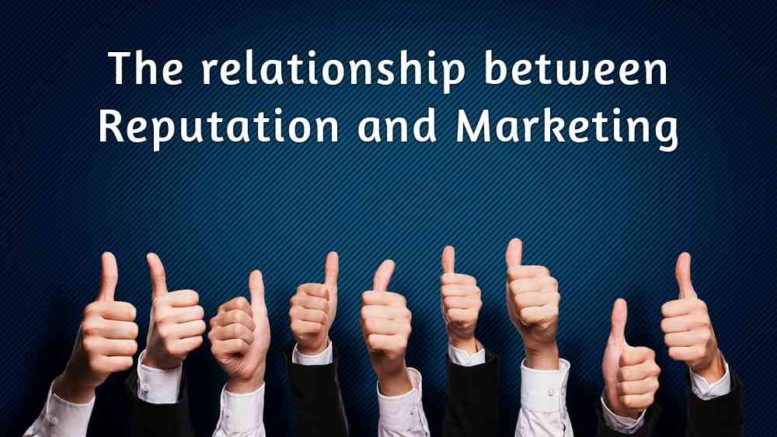I was just going through the report – Best Companies to Work For 2012-13 survey by Business Today and PeopleStrong in association with Naukri.com and noticed that Google emerged as the ‘Best Company to Work For’, close on its heels was Accenture, followed by TCS, Infosys, L&T and so on in the list. Obviously, they all featured high on the reputation index.
The success of any business is dependent on its reputation. Proper marketing ensures that the reputation you wish to project is accurately represented in the corporate scenario or the marketplace – to the general public. Building really great reputation may take long, and you must consistently market it to maintain it. The reputation of your company is built through active participation in effective communication (internally and externally), community programs, quality products or services – which people love to talk about and share with their friends and families.
Marketing helps both, big and small companies to grow and compete. With the advent of the internet, and social media in particular, we are able to connect with a global community – instantly. A well-planned marketing program is a sure-shot way to succeed; and here, it may be a healthy mix of different forms of marketing, such as website development, public relations, print and broadcast advertising, social media, trade shows and special events. Offering you the greatest opportunity to grow and develop your business will be – planning, implementing, monitoring and adjusting your marketing efforts. If you stay on top of it, you can always look for ways to improve the process!
Good reputation will be a plus point in SWOT
We all know that the SWOT analysis is a valuable step in your situational analysis in which internal strengths and weaknesses of an organisation, external opportunities and threats are closely examined to chart out a strategy. And, the SWOT analysis is useful in developing and synchronising your goals and your marketing strategy.
In this auditing of any organisation and its environment, if the reputation is strong, it will definitely be a high point in the ‘Strengths’ section.
Target-audience specific
Again the world of marketing is focused on the TG. And, reputation too, is usually built from: happy customers. Whether it depends on the quality of your product, your low prices, or your friendly service, the bottom line is that your reputation is built on ‘happy customer experiences’.
Marketing is all about the kind of experience you deliver to your target audience or customers with each and every interaction. The more compelling the experience, the faster you will build brand loyalty. In fact, the experience you build becomes your brand in your customers’ minds!
The right tone will make the experience not only unique to your brand, but also motivating for your customers. And without a great brand experience, you’re just another product!
Forging internal and external value
A company has to market its reputation to both external and internal audiences. Our reputation represents the way others look at us and as such, it is at once critically important. Critically important, because we live in a great social network and need a good reputation for practical purposes like friends and income. It’s hard to have friends if people think you’re mean and earning power would be hard to come by, if people think you’re unreliable or not worth it! The same holds good for brands.
Our reputation is a tool, then for practical existence in the market; if it’s good, it can smoothen out the brand’s journey, and a bad one can cause disaster, testing the brand’s confidence and its very existence, sometimes.
Creating customer experiences
Ultimately marketing is all about creating customer experiences. Organisations that are able to skillfully manage the entire experience reap rich rewards: enhanced customer satisfaction, increased revenue, and greater employee satisfaction. They also discover more effective ways to collaborate across functions – to deliver gains throughout the company.
But what if you’re new in business, or new to a given market? How do you build a reputation without customers? And how do you get customers without having a reputation?
In case you have answers for these questions, I will look forward to your response. Do write to me at: shree@reputationtoday.in.










Be the first to comment on "The reputation effect on marketing"